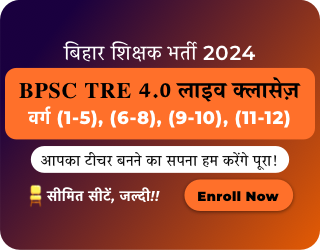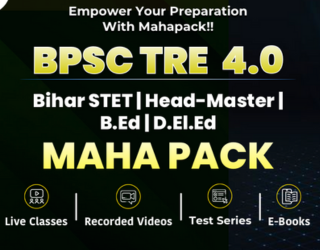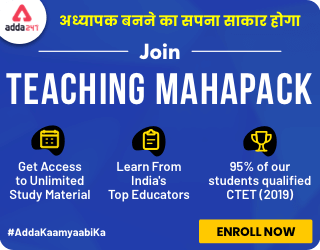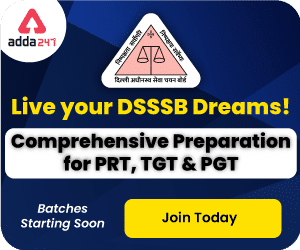UGC NET (University Grant Commission – National Eligibility Test) is a national-level examination conducted by the National Testing Agency (NTA). This examination scrutinizes the eligibility of the aspirants for JRF (Junior Research Fellowship) & the Assistant professor or only for NET. NTA UGC NET June Exam 2024 will be held on 18 June 2024. Therefore, the candidates start their preparation and Adda247 brings to you the strategy for preparing and clearing the NET Exam 2024.
UGC NET Examination Pattern
The UGC NET Aspirants must go through the UGC NET Exam Pattern 2024 to understand its intricacies. The candidates have to appear for two papers- Paper- I (Common for All) and Paper-II (Subject Concerned).
- UGC NET exam pattern 2024 comprises two papers
- UGC NET Paper I: Total Questions – 50 Questions, Total Marks – 100 marks
- UGC NET Paper-II: Total Questions -100 Questions, Total Marks – 200 marks
- The exam will be conducted in the same session, without any break.
- Paper I is common for all examinations, and applicants can select the Paper-II for specialization from a list of almost 100 subjects.
- Exam nature: Bilingual (English and Hindi)
- Exam mode: Offline
- UGC NET Paper I topics: People and Environment, Higher Education System: Governance, Polity, and Administration, Data Interpretation, Information and Communication Technology (ICT), Logical Reasoning, Communication, Reasoning (Including Mathematics), Reading Comprehension, Teaching Aptitude, Research Aptitude
- UGC NET Paper II topics: Based on the subject chosen by the applicants.
- UGC NET Passing Criteria: 40% marks in Paper – I and II in each paper
Check: UGC NET 2024 Admit Card Download Link
Strategy for UGC NET Exam Paper 1
The UGC NET Exam Paper 1 is designed to assess the teaching and research aptitude of candidates. It is essential to have a strategic approach to prepare effectively for each unit. Below is a detailed strategy for each subject-wise unit.
Unit 1: Teaching Aptitude
- Understand Teaching Concepts: Focus on the principles, levels, and characteristics of teaching.
- Learner Characteristics: Study the various learner characteristics and how they influence teaching.
- Teaching Methods: Familiarize yourself with different teaching methods and tools.
- Evaluation Systems: Understand different evaluation systems and their applications.
Unit 2: Research Aptitude
- Research Fundamentals: Learn about research types, characteristics, and ethics.
- Methods of Research: Study various research methodologies and their applications.
- Thesis and Article Writing: Understand the structure and components of theses and research articles.
- Sampling Techniques: Familiarize yourself with different sampling techniques and their uses.
Unit 3: Comprehension
- Reading Practice: Regularly practice reading comprehension passages.
- Critical Analysis: Develop skills to analyze and interpret the given text.
- Practice Questions: Solve previous years’ comprehension questions to understand the pattern.
Unit 4: Communication
- Communication Basics: Study the basics of communication, including types and barriers.
- Effective Communication: Learn techniques for effective communication.
- Classroom Communication: Understand the importance of communication in teaching.
Unit 5: Mathematical Reasoning and Aptitude
- Basic Concepts: Refresh your knowledge of basic mathematical concepts.
- Logical Problems: Practice solving logical and analytical problems.
- Practice Questions: Solve previous years’ questions to get familiar with the types of problems.
Unit 6: Logical Reasoning
- Reasoning Types: Study different types of reasoning – deductive, inductive, analogies, etc.
- Practice Problems: Regularly practice reasoning problems.
- Past Papers: Review past paper questions to understand the reasoning patterns.
Unit 7: Data Interpretation
- Data Types: Learn to interpret different types of data representations.
- Calculation Speed: Improve your speed and accuracy in calculations.
- Practice Sets: Solve various data interpretation sets from previous exams.
Unit 8: Information and Communication Technology (ICT)
- Basics of ICT: Understand the basic concepts of ICT and its applications.
- Use in Education: Learn about the role of ICT in education.
- Current Trends: Stay updated with the latest trends and developments in ICT.
Unit 9: People, Development, and Environment
- Environmental Issues: Study major environmental issues and policies.
- Sustainable Development: Understand the concept of sustainable development.
- Human and Social Development: Learn about human and social development indicators.
Unit 10: Higher Education System
- Education Policies: Study the history and current policies of the higher education system.
- Institutions and Bodies: Learn about the various higher education institutions and regulatory bodies.
- Quality and Governance: Understand the issues related to quality and governance in higher education.
Tips for UGC NET Exam preparation
Before you begin the preparation, here we have explained the tips for UGC NET Exam.
- Understand the syllabus and exam pattern thoroughly.
- Create a study schedule and stick to it.
- Gather quality study materials and resources.
- Practice previous years’ question papers and mock tests.
- Focus on strengthening conceptual understanding.
- Take regular breaks to avoid burnout.
- Stay updated with current affairs and developments in your field.
- Form study groups or seek guidance from mentors.
- Revise and review regularly to reinforce your knowledge.
- Stay calm and confident on the day of the exam.
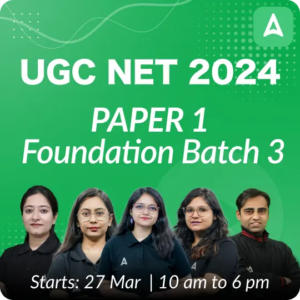
Sharing is caring!




 WB SET Preparation Tips, Subject-wise
WB SET Preparation Tips, Subject-wise
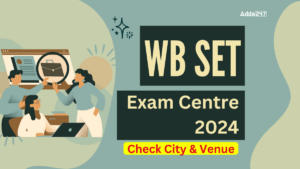 WB SET Exam Centre 2024, Check District-...
WB SET Exam Centre 2024, Check District-...
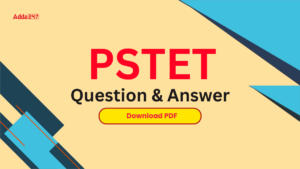 Important PSTET EVS Question and Answers...
Important PSTET EVS Question and Answers...







